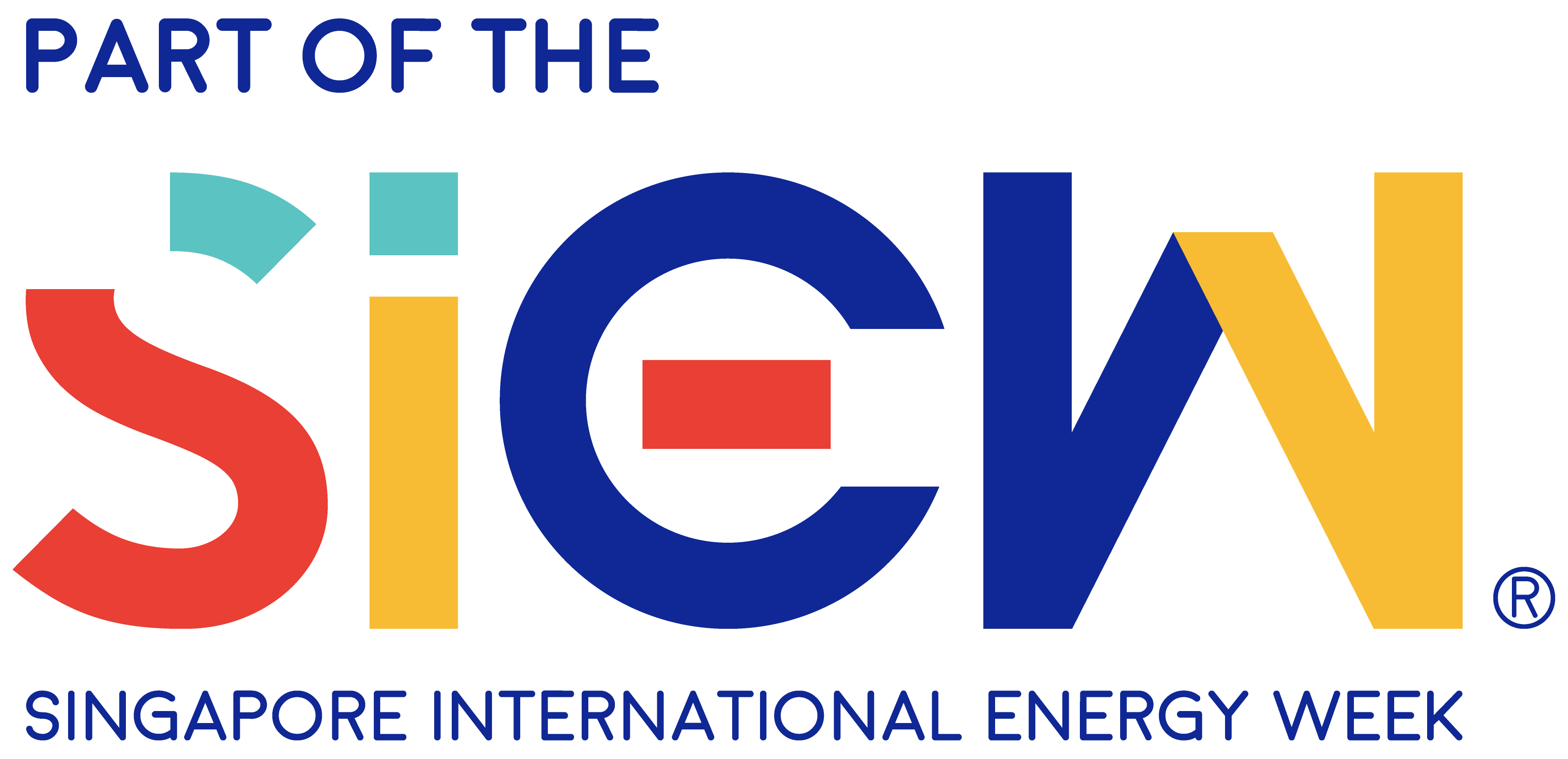Conference
Agenda
CONFERENCE DAY TWO - 30 OCTOBER 2025, WEDNESDAY
Level 4 Orchid Ballroom 4305
 Clarence Woo, Managing Director - Global Centre for Green Fuels, Singapore
Clarence Woo, Managing Director - Global Centre for Green Fuels, SingaporePLENARY 3 COLLABORATION, DIVERSIFICATION AND TRANSFORMATION
This session dives into the potential of large-scale, reliable hydropower as the essential power source for downstream industries. Learn how hydro provides the continuous, affordable energy needed for massive electrification, offering the fastest route to eliminating fossil fuels from your processes. This is not just about compliance, it is about gaining a competitive edge. Discover how leveraging this resource allows downstream partners to dramatically slash Scope 2 emissions, bolster energy security, and unlock the seamless mass-production of green hydrogen via electrolysis, the low-carbon feedstock and fuel that will define tomorrow’s hard-to-abate sectors. Learn about turning strategic hydro access into a commercially viable, fully sustainable industrial advantage.
Level 4 Orchid Ballroom 4305
 Dr. Shiun Chen, Senior Vice President, Strategy and Corporate Development - Sarawak Energy, Malaysia
Dr. Shiun Chen, Senior Vice President, Strategy and Corporate Development - Sarawak Energy, MalaysiaLevel 4 Orchid Ballroom 4305
 Alwyn Bowden, Chief Executive Officer - Pengerang Energy Complex, Singapore
Alwyn Bowden, Chief Executive Officer - Pengerang Energy Complex, Singapore Dr. Partha Maitra, President, Strategy & Initiatives - Reliance Industries Ltd., India
Dr. Partha Maitra, President, Strategy & Initiatives - Reliance Industries Ltd., India Dr. Suracha Udomsak, Chief Operations and Innovation Officer - SCGC, Thailand
Dr. Suracha Udomsak, Chief Operations and Innovation Officer - SCGC, Thailand Edy Januari, Vice President, Process and Facility - PT Kilang Pertamina Internasional, Indonesia
Edy Januari, Vice President, Process and Facility - PT Kilang Pertamina Internasional, Indonesia  Andrew Saunders Tack, APAC Director - Becht, New Zealand
Andrew Saunders Tack, APAC Director - Becht, New Zealand- How reconfiguration projects are being driven by the need for greater sustainability
- Role of electrification in modernising downstream processes, feasibility of integrating renewable energy sources, and maximising energy efficiency in new and revamped units
- Advancements in technologies and process equipment, such as energy storage solutions
- Innovative approaches and challenges to integrating electric and renewable infrastructure into existing facilities
As global industries face mounting challenges such as rising capital costs, long project timelines, and increasing sustainability pressures, traditional greenfield development is no longer the only path to growth. This presentation introduces a faster, smarter, and more sustainable alternative: the redeployment and reuse of industrial assets.
Through real-world success stories and IPP’s global experience, Saad Arif demonstrates how redeploying world-class manufacturing assets can deliver capital savings, achieve project completion faster, and reduce carbon emissions associated with project construction.
Highlighting transformative projects across chemicals, fertilizers, and pharmaceuticals, including IPP’s ongoing initiative with the JG Summit Petrochemical Complex in the Philippines, Saad explains how this model enables circular industrialization and accelerates capacity expansion across emerging markets.
The session offers practical insights for investors, operators, and policymakers seeking to achieve rapid, capital-efficient growth while transforming idle industrial assets into engines of new opportunity.
Level 4 Orchid Ballroom 4305
 Saad Arif, Director, Plant Sales & Strategic Projects - International Process Plants, USA
Saad Arif, Director, Plant Sales & Strategic Projects - International Process Plants, USA Level 4 Orchid Ballroom 4305
 Andrew Saunders Tack, APAC Director - Becht, New Zealand
Andrew Saunders Tack, APAC Director - Becht, New ZealandLevel 4 Orchid Ballroom 4302
 Minho Kim, Senior Business Development Manager, Catalysts & Licensing - ExxonMobil Chemical Korea, South Korea
Minho Kim, Senior Business Development Manager, Catalysts & Licensing - ExxonMobil Chemical Korea, South KoreaLevel 4 Orchid Ballroom 4303
 Serene Johnson, Executive Director - Asian Clean Fuels Association, Singapore
Serene Johnson, Executive Director - Asian Clean Fuels Association, SingaporeLevel 4 Orchid Ballroom 4305
 Daniel Phan, Regional Manager - Asset Performance Networks (AP-Networks), Asia Pacific
Daniel Phan, Regional Manager - Asset Performance Networks (AP-Networks), Asia Pacific Level 4 Orchid Ballroom 4302
 Rafael Gonzalez, Regional Marketing Manager Asia Pacific - W. R. Grace & Co., Spain
Rafael Gonzalez, Regional Marketing Manager Asia Pacific - W. R. Grace & Co., SpainLevel 4 Orchid Ballroom 4303
 Dr. Li Yan, Assistant Research Fellow - SINOPEC, China
Dr. Li Yan, Assistant Research Fellow - SINOPEC, ChinaLevel 4 Orchid Ballroom 4305
 Zach Cater-Cyker, APAC Corrosion, Material & Integrity Lead - Becht, Singapore
Zach Cater-Cyker, APAC Corrosion, Material & Integrity Lead - Becht, SingaporeLevel 4 Orchid Ballroom 4302
 Rafik Inamdar, Business Development Manager - ExxonMobil Catalysts and Licensing, Singapore
Rafik Inamdar, Business Development Manager - ExxonMobil Catalysts and Licensing, SingaporeLevel 4 Orchid Ballroom 4303
 Dr. Li Yan, Assistant Research Fellow - SINOPEC, China
Dr. Li Yan, Assistant Research Fellow - SINOPEC, China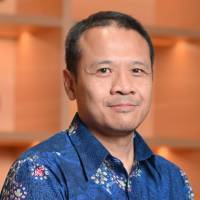 Dr. Alloysius Joko Purwanto, Energy Economist - Economic Research Institute for ASEAN and East Asia (ERIA), Indonesia
Dr. Alloysius Joko Purwanto, Energy Economist - Economic Research Institute for ASEAN and East Asia (ERIA), Indonesia  Gaurav Vyas, Assistant Vice President, Strategy - Reliance Industries, India
Gaurav Vyas, Assistant Vice President, Strategy - Reliance Industries, India  Clarence Woo, Managing Director - Global Centre for Green Fuels, Singapore
Clarence Woo, Managing Director - Global Centre for Green Fuels, Singapore- Effective strategies for implementation of capacity to produce biofuels
- The technical and financial implications on refinery conversions
- Maximising efficiency and mitigating risks
- Adapting for the infrastructure and logistics for the distribution and marketing of biofuels in the region
- Analysing the economics behind biofuels projects and decarbonising in a cost-effective basis
Level 4 Orchid Ballroom 4305
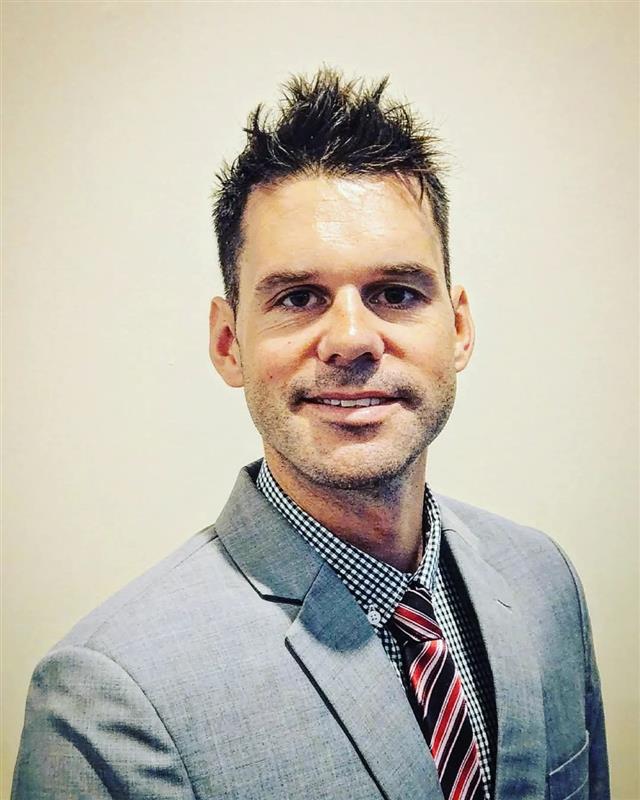 Pete Johnson, Director - Oil & Gas, APAC, Integrated Global Services, Thailand
Pete Johnson, Director - Oil & Gas, APAC, Integrated Global Services, ThailandLevel 4 Orchid Ballroom 4302
 Himanshu Chauhan, Business Development Manager - UNICAT Catalyst Technologies, India
Himanshu Chauhan, Business Development Manager - UNICAT Catalyst Technologies, India Level 4 Orchid Ballroom 4305
 Cameron Kennedy, Technical Manager, Downstream Chemicals Asia Pacific - Baker Hughes
Cameron Kennedy, Technical Manager, Downstream Chemicals Asia Pacific - Baker Hughes Level 4 Orchid Ballroom 4302
 Dr. Ioan-Teodor Trotus, Segment Lead Refining - hte GmbH, Germany
Dr. Ioan-Teodor Trotus, Segment Lead Refining - hte GmbH, GermanyLevel 4 Orchid Ballroom 4303
 Lili Zhang, Division Director - Emerging Technologies, Institute of Sustainability for Chemicals, Energy and Environment (ISCE2), A*STAR, Singapore
Lili Zhang, Division Director - Emerging Technologies, Institute of Sustainability for Chemicals, Energy and Environment (ISCE2), A*STAR, SingaporeLevel 4 Orchid Ballroom 4305
 Yotaro Sen, Business Value Consultant, Asset Lifecycle Intelligence Division - Hexagon, Japan
Yotaro Sen, Business Value Consultant, Asset Lifecycle Intelligence Division - Hexagon, Japan Level 4 Orchid Ballroom 4302
 Hermawan Yudhistiro, Chief of Engineering Process Development - PT Kilang Pertamina Internasional, Indonesia
Hermawan Yudhistiro, Chief of Engineering Process Development - PT Kilang Pertamina Internasional, Indonesia Adi Prasetyo, Process Engineer - PT Kilang Pertamina Internasional, Indonesia
Adi Prasetyo, Process Engineer - PT Kilang Pertamina Internasional, IndonesiaLevel 4 Orchid Ballroom 4303
 Steven Bartholomeusz, Head of Public and Regulatory Affairs, Asia Pacific - Neste, Singapore
Steven Bartholomeusz, Head of Public and Regulatory Affairs, Asia Pacific - Neste, Singapore Hélène Burger, Head of International Cooperation & Sustainability APAC - Airbus Singapore, Singapore
Hélène Burger, Head of International Cooperation & Sustainability APAC - Airbus Singapore, Singapore Fabrice Espinosa, CEO - Asia SAF Association (ASAFA), Singapore
Fabrice Espinosa, CEO - Asia SAF Association (ASAFA), Singapore - Readiness of the industry for widespread SAF adoption
- Significant cost factors hindering SAF’s competitiveness
- Are policy mandates and incentives necessary to accelerate SAF uptake?
- SAF production pathways and strategies
- Aligning production capacity with current and future demand
- The role of the downstream refinery and petrochemical industry in SAF production
Level 4 Orchid Ballroom 4305
 Muhammad Aswadi Bin Salleh, General Secretary - United Workers of Petroleum Industry, Singapore
Muhammad Aswadi Bin Salleh, General Secretary - United Workers of Petroleum Industry, Singapore Kait Dinunzio, Managing Director - Pyxis, Canada
Kait Dinunzio, Managing Director - Pyxis, Canada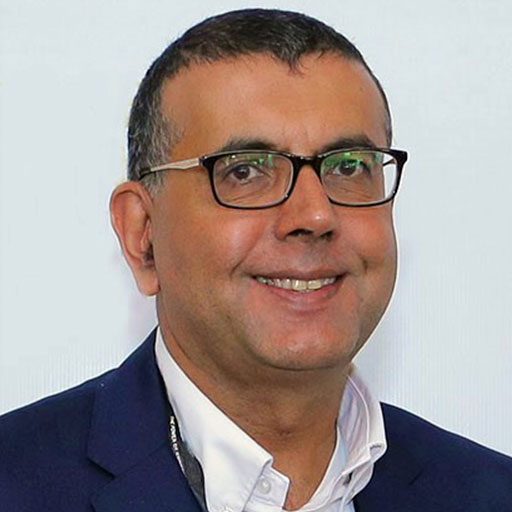 Bob Gill, General Manager, Southeast Asia - ARC Advisory Group, Singapore
Bob Gill, General Manager, Southeast Asia - ARC Advisory Group, Singapore - The impact of rapid technological advancements on the skills and competencies in the downstream sector
- Building a resilient and adaptable workforce capable of navigating the complexities of the digital age
- Bridging the generational divide in the workforce through a culture of continuous learning, knowledge transfer and upskilling initiatives
Level 4 Orchid Ballroom 4305
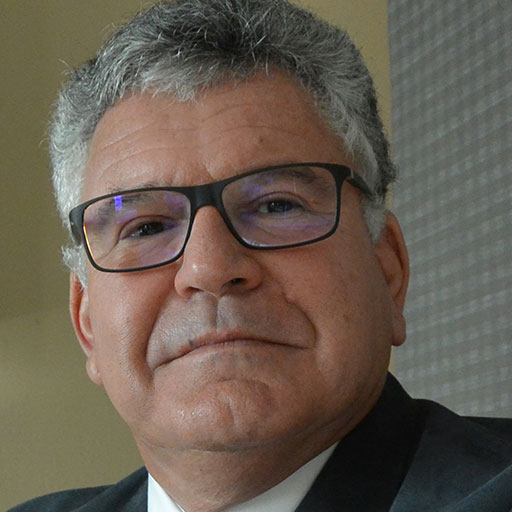 Peter Godfrey, Managing Director, APAC - Energy Institute, Singapore
Peter Godfrey, Managing Director, APAC - Energy Institute, Singapore PLENARY 4 THE FUTURE OF DOWNSTREAM
This session focuses on the evolving energy dynamics and their implications for the downstream refinery and petrochemical sectors. It will delve into key challenges, policy considerations, energy security, and the strategic role of gas. It will also cover the impact of AI, critical minerals, and hydrogen opportunities in Asia. The session will unpack the latest data, demand-supply balance, and the interplay of technology, trade, self-reliance, and national energy transition goals.
Level 4 Orchid Ballroom 4305
 Sue-Ern Tan, Head, Regional Cooperation Centre - International Energy Agency (IEA), Singapore
Sue-Ern Tan, Head, Regional Cooperation Centre - International Energy Agency (IEA), SingaporeWhy start from scratch when you can reinvent from strength? With roots as a refining and petrochemical powerhouse, Jurong Island’s existing infrastructure and dense clustering of both traditional and new energy industries create a strong foundation and collaborative ecosystem for its transformation towards low-carbon future.
In this fireside chat, EDB and JTC will share how Jurong Island is positioning itself not just as a sustainable energy and chemicals park, but as a platform and gateway for specialty chemicals and sustainable materials as well as low-carbon innovation and new energies that will define the future industry in Singapore and beyond.
Level 4 Orchid Ballroom 4305
 Jacqueline Poh, Chief Executive Officer - JTC Corporation, Singapore
Jacqueline Poh, Chief Executive Officer - JTC Corporation, Singapore  Lim Wey-Len, Executive Vice President & Member of the Executive Committee - Singapore Economic Development Board
Lim Wey-Len, Executive Vice President & Member of the Executive Committee - Singapore Economic Development Board Tim Rockell, Managing Director - Energy Strat Asia, Singapore
Tim Rockell, Managing Director - Energy Strat Asia, SingaporeLevel 4 Orchid Ballroom 4305
 Kapil Sahni, Chief Transformation Officer - Nghi Son Refinery and Petrochemical, Vietnam
Kapil Sahni, Chief Transformation Officer - Nghi Son Refinery and Petrochemical, Vietnam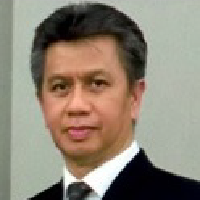 Dempsy Robby Kambey, General Manager Asset Management - PT Kreasindo Resources, Indonesia
Dempsy Robby Kambey, General Manager Asset Management - PT Kreasindo Resources, Indonesia Dr. Ruengsak Thitiratsakul, Advisor - Petroleum and Energy Institute of Thailand, Thailand
Dr. Ruengsak Thitiratsakul, Advisor - Petroleum and Energy Institute of Thailand, Thailand  Beni Suryadi, Senior Manager of ASEAN Plan of Action for Energy Cooperation (APAEC) and Strategic Partnership - ASEAN Centre for Energy Indonesia
Beni Suryadi, Senior Manager of ASEAN Plan of Action for Energy Cooperation (APAEC) and Strategic Partnership - ASEAN Centre for Energy Indonesia Peter Godfrey, Managing Director, APAC - Energy Institute, Singapore
Peter Godfrey, Managing Director, APAC - Energy Institute, Singapore Agree: Some believe that the US trade policies and climate agreement withdrawals threaten Asia’s downstream sector. Tariffs create cost disadvantages, disrupt supply chains, and stifle investment. A US climate policy reversal undermines global action, disincentivises green investment, and hinders decarbonisation.
Disagree: Others content that the resilient Asian downstream sector will adapt through market diversification and regional partnerships. US policies may change, creating unforeseen opportunities. Asia’s decarbonisation drive is independent and will continue, potentially positioning the region as a green technology leader.
The next ten years will reshape the downstream sector beyond recognition. Traditional fuels are facing a rapid decline, while disruptive technologies like chemical recycling and bio-based feedstocks are poised to transform the industry. This panel will explore the threats and opportunities facing downstream players. This session will analyse the emerging markets for advanced materials and specialty chemicals, debate the future of refining, and predict the rise of new value chains.
Level 4 Orchid Ballroom 4305
 Hassan Alyami, Vice President, Ras Tanura Refinery - Aramco, Saudi Arabia
Hassan Alyami, Vice President, Ras Tanura Refinery - Aramco, Saudi Arabia  Kapil Sahni, Chief Transformation Officer - Nghi Son Refinery and Petrochemical, Vietnam
Kapil Sahni, Chief Transformation Officer - Nghi Son Refinery and Petrochemical, Vietnam Mai Tuan Dat, Vice President & CTO - Binh Son Refining and Petrochemical JSC, Vietnam
Mai Tuan Dat, Vice President & CTO - Binh Son Refining and Petrochemical JSC, Vietnam  Syed Saggaf, Regional Director for Asia Pacific (APAC) - Energy Industries Council (EIC), Malaysia
Syed Saggaf, Regional Director for Asia Pacific (APAC) - Energy Industries Council (EIC), MalaysiaA synthesis of key insights from the preceding sessions, combined with a personal reflection on the future of the downstream sector — exploring how it can remain resilient and relevant amid rapidly evolving industrial ecosystems and shifting global dynamics.
Level 4 Orchid Ballroom 4305
 Peter Godfrey, Managing Director, APAC - Energy Institute, Singapore
Peter Godfrey, Managing Director, APAC - Energy Institute, Singapore 


